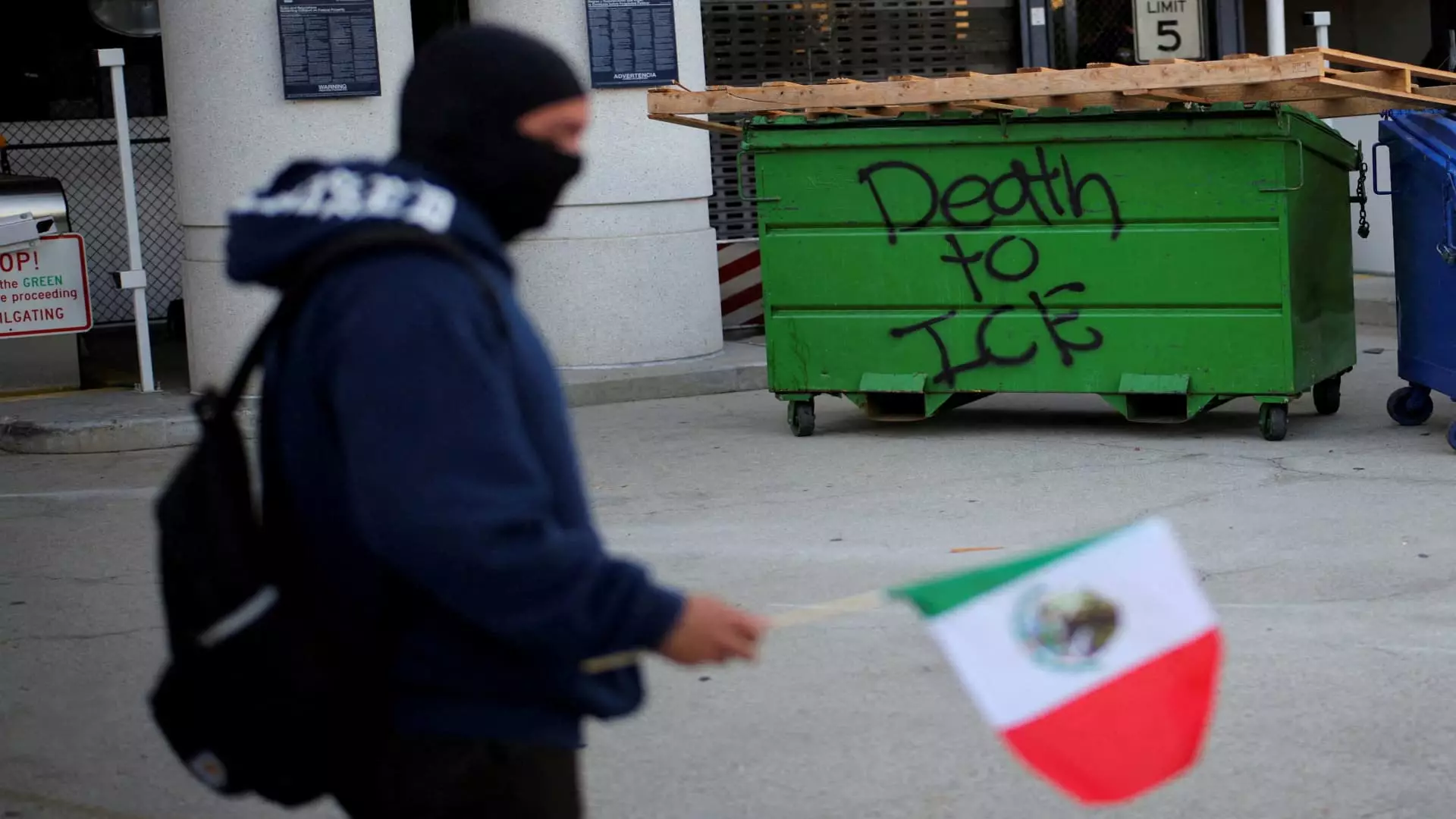In an intense showdown in Los Angeles, the mounting tensions surrounding immigration policy erupted into protests, revealing the stark divide between federal authority and community solidarity. What initially presented itself as a dispute over immigration enforcement escalated into a battleground of ideals, highlighting the animosity felt by many towards a government perceived as an overreaching entity. The demonstrators, emboldened by recent raids carried out by Immigration and Customs Enforcement (ICE), wielded their voices and symbols of cultural pride in defiance of authority. The presence of federal agents, clad in military-style gear, only intensified the atmosphere of conflict, leading to confrontations that echoed cries of resistance against oppressive tactics.
This scene is not just a local spectacle; it is a microcosm of a national struggle. Frustrations have boiled over into the streets as residents of Los Angeles voice their outrage against policies that have instilled fear and insecurity within immigrant communities. The protests call attention to an immigration system that many believe is broken—a system that indiscriminately disrupts lives, tears families apart, and incites widespread panic. The deployment of federal agents for these operations is seen not only as an enforcement action but as a profound intrusion into civilian life.
An Insurrection or a Call for Justice?
The White House’s reaction to the protests, particularly the remarks made by senior advisor Stephen Miller, further illustrates the ongoing tension. Characterizing the protests as an “insurrection” displays an alarming level of disconnect from the reality faced by countless families grappling with the anxiety of living under constant threat of deportation. By framing dissent as an attack on the sovereignty of the United States, the administration fails to acknowledge the legitimate grievances that drive individuals to stand up against what they perceive as government tyranny.
What Miller and other officials fail to recognize is the historical context behind these protests. For many, standing against ICE raids is not an act of defiance against America but a plea for humanity and compassion in the face of draconian policies. The characterization of protesters as “rioters” belies a nuanced understanding of civil disobedience, particularly when individuals are driven to action by systematic injustices. The language used by the administration only serves to further polarize the dialogue surrounding immigration and civil rights.
Compounding Social Divisions
Los Angeles, a city enriched by a diverse tapestry of cultures, felt the weight of its demographics during these confrontations. With a significant portion of the population identifying as Hispanic or foreign-born, the community’s response to federal immigration enforcement represents not just a political stance but a deeply personal one. Leaders like Mayor Karen Bass have condemned the federal tactics as tools of intimidation that disrupt the fabric of community safety and stability. Her fiery denunciation highlights a growing recognition among local officials that immigration raids do not merely target undocumented immigrants; they sow seeds of fear among entire communities, igniting a cycle of distrust and resentment.
Moreover, the narrative crafted by the Department of Homeland Security (DHS) further complicates this issue. By accusing local politicians of fostering violence against ICE agents, the DHS deflects attention away from the real issues at play. It is clear that the conflict is not merely limited to skirmishes on the streets of Los Angeles. It represents a broader struggle for dignity and equity in a system that increasingly marginalizes entire communities under the guise of law and order.
The Critical Need for Reform
This confrontation underscores a critical need for profound immigration reform—one that respects human rights and acknowledges the humanity of all individuals involved. The status quo, marked by crackdowns and militarized responses, only serves to exacerbate the divisions and resentment festering within society. Compassionate policies that prioritize family unity, pathway-to-citizenship initiatives, and the protection of vulnerable populations are essential to navigate the complexities of immigration.
As tensions escalate, it is apparent that merely labeling dissenters as resistance figures fails to address the underlying issues at stake. The political landscape must shift to one that fosters dialogue rather than division. The path towards understanding and compassion must be paved by those willing to listen to the voices of the marginalized and recognize the urgency for substantive change. Only then can we hope to heal the fractures within our society and work towards a more equitable future for all.

